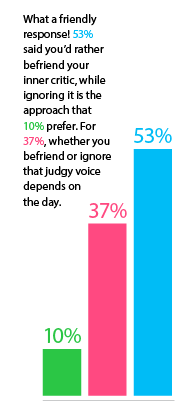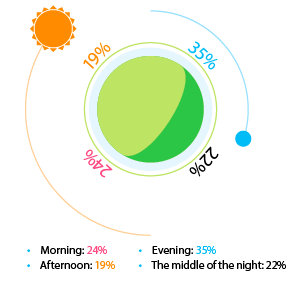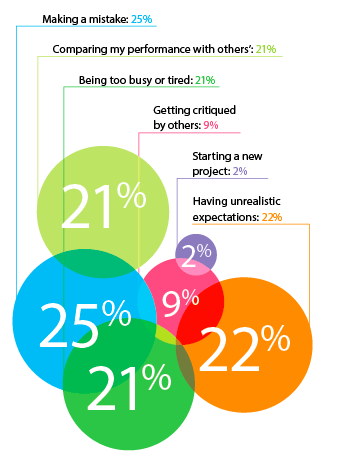How do you tend to respond to your inner critic?
- “I recognize what is going on and why—am I tired, hungry, sad, angry?”
- “I wait for it
- to pass.”
- “I have a short rant, then look at what’s happening more holistically.”
- “I stop comparing myself with others, and allow myself to forgive me.”
- “I write down what the inner critic says and respond to myself with the truth as I see it. It usually works well when I do it in the moment.”
- “I focus on the good things I have done, and the things I did right.”
- “With a meditation practice, I am listening more.”
- “I go to my art room and start painting, drawing, or doing mixed media.”
- “I meditate and connect with people I know will hear me out with nonjudgment. I move on and show up in the world.”
- “I try to remember all of the people who love me and care for me, despite feeling a little heavy.”
Is it better to ignore your inner critic, or befriend it?

At what time is your inner critic most active?

What activates your inner critic the most?

Who has been your best teacher for meeting your inner critic?
- My therapist and mindfulness teacher.”
- “Tara Brach and Brené Brown.”
- “My 13-year-old son.”
- “A coworker.”
- “My faith.”
- “Friends who shared their experience. I realized, ‘I can do that.’”
- “Silence.”
How do you recognize the “voice” of your inner critic?
Some say that their inner critic delivers a specific tone of voice: It’s loud, harsh, condescending, and relentless. For others, the inner critic’s presence is clear from the emotions it brings—it can make us feel depressed, anxious, angry, even incapable of meeting challenges. Still others know that voice from identifying closely with it: “It sounds like my own voice.”






